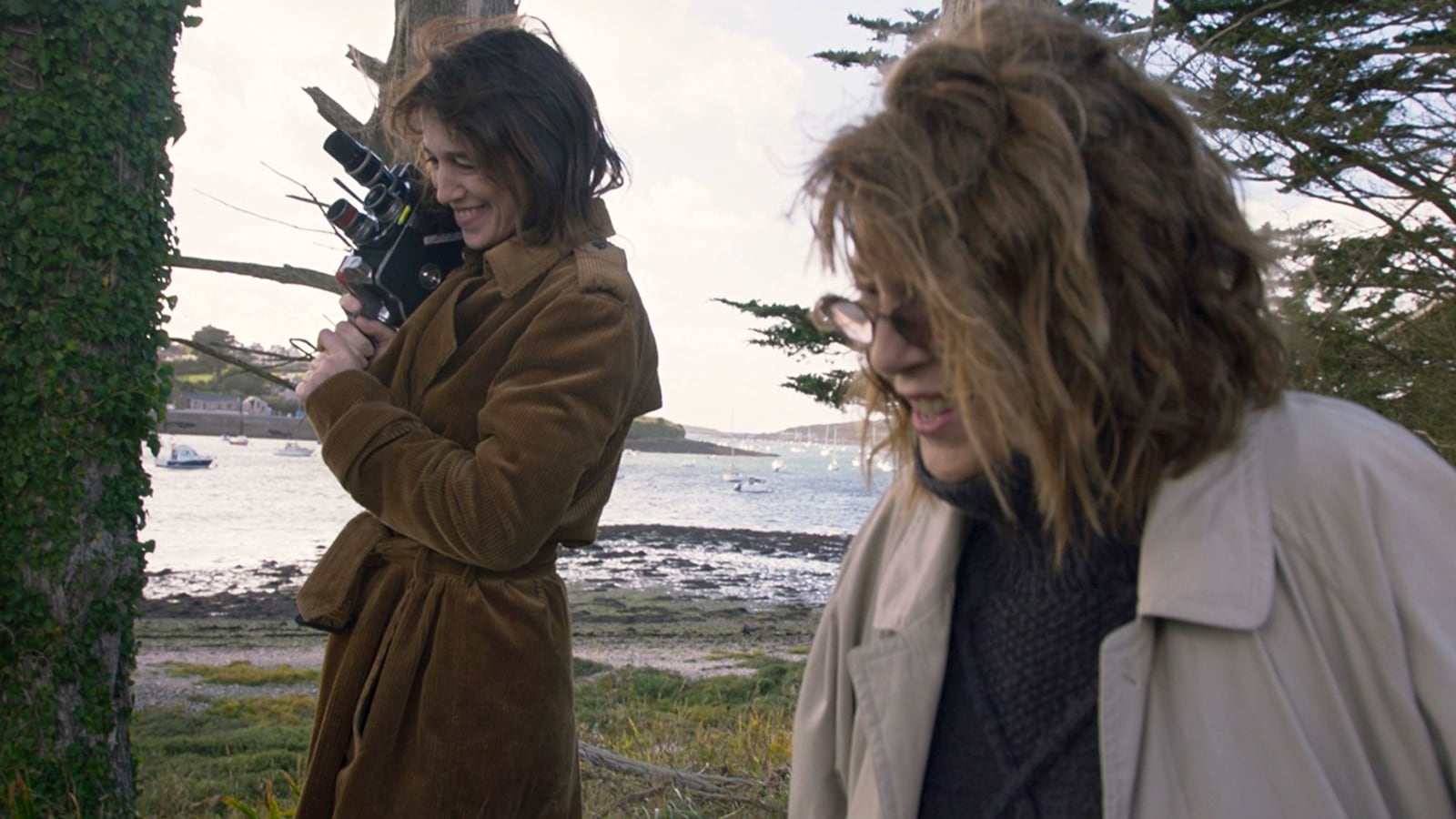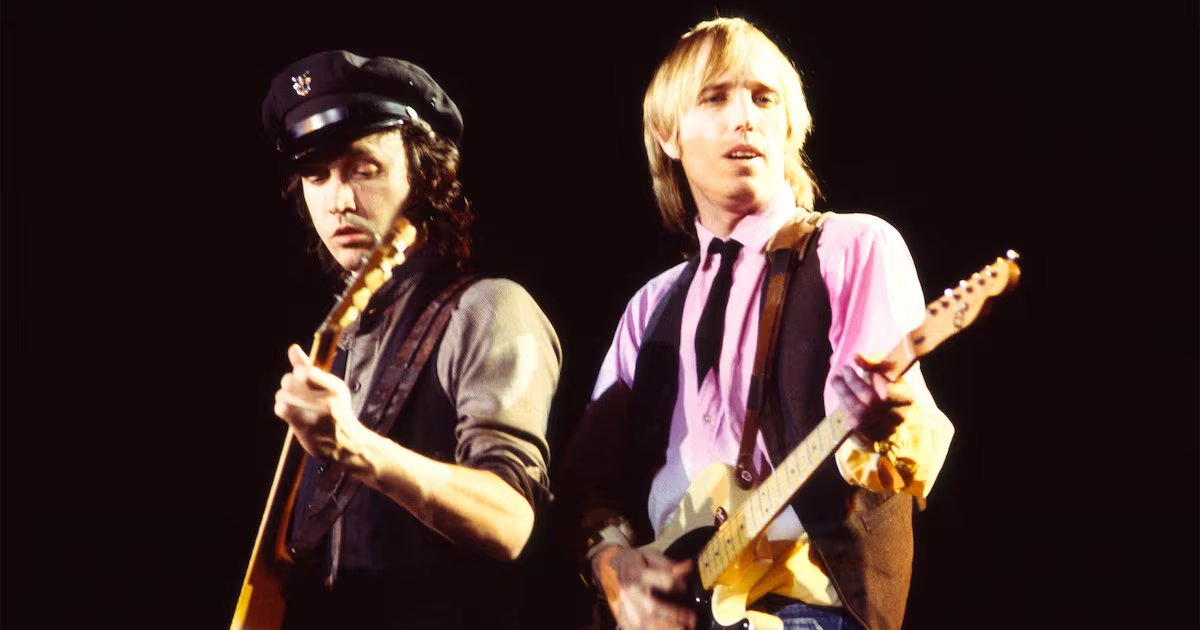Many Americans may not be familiar with Jane Birkin, the English-French actress and singer who was famously involved (and collaborated) with legendary pop star Serge Gainsbourg during the 1970s. Unfortunately, Jane by Charlotte, a study of the artist by her acclaimed actress/musician daughter Charlotte Gainsbourg (Nymphomaniac), won’t provide great illumination for those not already in the know, as it paints a portrait of their relationship that’s so devoid of context, or even basic biographical information, that it plays as more of a personal rumination than a work for a wide audience. Nestled within its non-fiction action are glimpses of the strengths and strains that define this familial duo’s bond, but for the most part, it’s an examination fit primarily for aficionados.
Now playing in theaters following its debut at last year’s Cannes Film Festival (as well as the New York Film Festival), Jane by Charlotte begins with Gainsbourg spying on Birkin from the side of a stage as she makes her entrance to applause and begins singing while accompanied by a Japanese orchestra. Whether this is a stop on an international tour or a one-off performance is both unknown and, apparently, unimportant, since the film has been sculpted as more of a casual, meandering snapshot than a traditional biodoc. That tack certainly generates an intense level of intimacy, as Gainsbourg and Birkin open up to each other in a variety of global locales, from the rooftops of a New York City apartment building, to the kitchen of Birkin’s cluttered rural home, to a studio where the two are participating in a joint photo shoot. What it doesn’t do, however, is ground the viewer in any sort of larger narrative or thematic framework, the result being a sense of eavesdropping on particular, scattered moments in time.
At the conclusion of Jane by Charlotte, Gainsbourg overtly articulates the modus operandi behind this project: to “cling” to Birkin, to the love she feels for her, and more generally still, to an ever-retreating past that refuses to stay stationary. This universal sentiment is the strongest thread running throughout Gainsbourg’s film, and is directly related to her own relationship to her youngest child Jo, whose appearance often casts such ideas in a grander three-generations light. Comparable notions materialize in mother and daughter’s dialogue about their history and their present, lending the proceedings an affectionate wistfulness. Alas, that mood only goes so far, as when Gainsbourg states that she also covets Birkin’s ability to live life with no filters, and no mistrust, which may be true—Birkin says as much earlier in the movie—but proves one of many random utterances heard during the course of this delicately rambling affair.
Birkin began her career as an actress (notably, she had a small part in Michelangelo Antonioni’s Blowup) but found true fame courtesy of her professional and amorous partnership with French icon Serge Gainsbourg, beginning with her starring role opposite him in 1969’s Slogan. Jane by Charlotte, however, makes no mention of that movie, nor of most of Birkin’s musical efforts with Gainsbourg, who passed away in 1991 at the age of 62. The same holds true for the two other marriages that bookended her relationship with Gainsbourg—the first to composer John Barry (with whom she had daughter Kate), and the second to director Jacques Doillon (with whom she had daughter Lou)—as well as to her ensuing acting and musical projects. While some of these topics are briefly alluded to, as is the effect that Kate’s untimely death had on Birkin, they’re raised and discarded as if in a vacuum; if one isn’t aware of who Kate or Barry are, for example, such references will have no impact, and probably confuse more than enlighten.
Consequently, anyone clueless about Birkin going into Jane by Charlotte will remain so when the credits roll. Gainsbourg undoubtedly knows this and has deliberately fashioned her documentary as something more specific and subjective. Nonetheless, by wholly eschewing any address of her mother’s importance and stature, she offers neither justification for this endeavor, nor any ability to glean something profound from these interactions. Still, there are instances of striking tenderness, as when Birkin is interviewed in front of home movie projections, and has to turn away because seeing her younger self with Kate (which seems like another life) is simply too painful. Both Birkin and Gainsbourg feel the powerful pull of yesterday, and yet even when they’re at their most revealing, one clamors for more insight into their relationship—a sense of their closeness, their ups and downs, and their similarities and differences, which are casually remarked upon but rarely felt, thanks to a structure that glides from one brief exchange to the next.
Perhaps the most purely nostalgic scene in Jane by Charlotte finds the duo visiting the former home of Serge Gainsbourg, which his daughter has kept preserved just as it was when he passed away three decades ago. Wandering the cluttered halls and dark rooms of this inner sanctum, the two reminisce about their time living in the abode, trying to remember that which has been lost to time. Serge Gainsbourg, however, is merely one of numerous specters haunting this documentary, spied in a few 16mm home movie clips and occasionally brought up in conversation. The vague way in which Gainsbourg tackles her father is in keeping with the overarching haziness of her biographical account of her mom, who comes across as an introspective if nebulous artist trying to grapple with a full and complicated life of triumphs and tragedies.
Once a celebrated beauty, the now-75-year-old Birkin opens up about the fact that, at a certain point, she stopped physically recognizing herself and, subsequently, ceased caring about how she looked. Candid confessions like that make intermittent appearances in Jane by Charlotte, but frustratingly, they remain untethered to any wider confrontation of what made Birkin a star in the first place. While Gainsbourg’s light, ruminative approach is, in theory, preferable to a stuffily conventional chronological format, her film only affords a blurry idea about her and Birkin’s obviously complex dynamic. It leaves one wanting more, in the least satisfying way possible.






